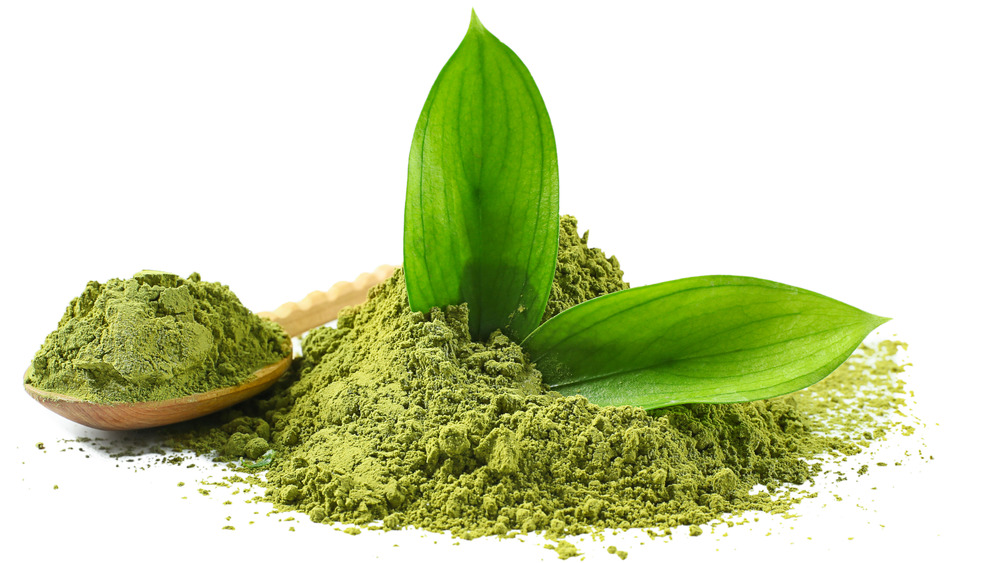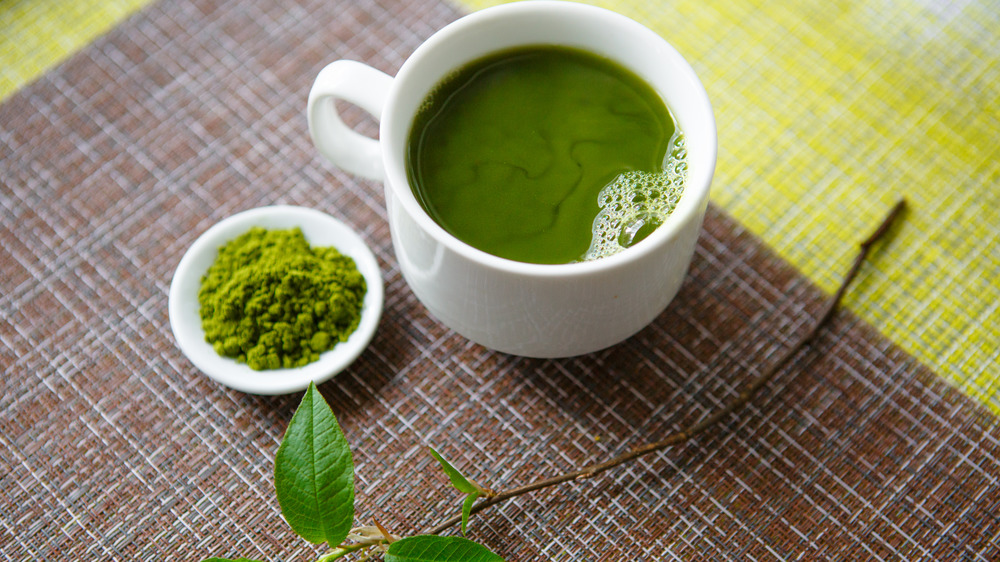Is Matcha Tea Really As Healthy As You Think?
Matcha tea has drastically grown in popularity in recent years and for good reason. Whether it's in tea or latte form, drinking matcha can have significant health benefits.
Matcha is a fine powder made from the leaves of the Camellia sinensis plant — the same plant used to make green tea (via Time). Unlike green tea, however, matcha contains a higher concentration of nutrients and caffeine due to the way the tea leaves are grown and harvested. Tea plants used to make matcha are grown in the shade, increasing the amount of chlorophyll in the leaves. This is what gives matcha its bright hue. After the leaves are picked and harvested, the veins and stems are removed and the leaves are ground into a very fine powder.
"It takes an hour to grind the leaves, and it's done in the dark to protect the nutrients," Louise Cheadle, co-author of The Book of Matcha and co-owner of the tea company teapigs, told Time. "The finest matcha comes from Japan, where it has been grown for centuries and forms part of the traditional Japanese tea ceremony."
The health benefits of matcha tea
No matter where or when it's grown, matcha is linked to a variety of health benefits (via Healthline). Matcha tea contains catechins, a naturally occurring class of antioxidants, that can help repair cell damage and prevent chronic illness. According to one study, the amount of catechins in matcha is 137 times greater than those found in green tea.
Matcha tea can also help improve brain function. In addition to its higher concentration of caffeine, matcha contains L-theanine, an amino acid which can promote alertness and increase alpha wave activity in the brain. Alpha brain waves can induce a state of wakeful relaxation. A number of other studies indicate that matcha can also help prevent liver damage, decrease the risk of heart disease, improve weight loss, and prevent cancer.
While matcha can be consumed in a variety of ways, the easiest to enjoy the health benefits of the powder is to make it into a tea. You can do this by simply stirring 1 to 2 teaspoons of matcha powder into a cup of hot water. The recommended serving size is no more than two cups per day.


